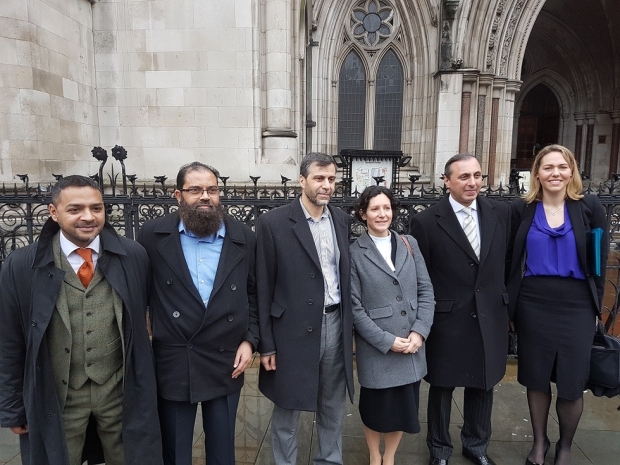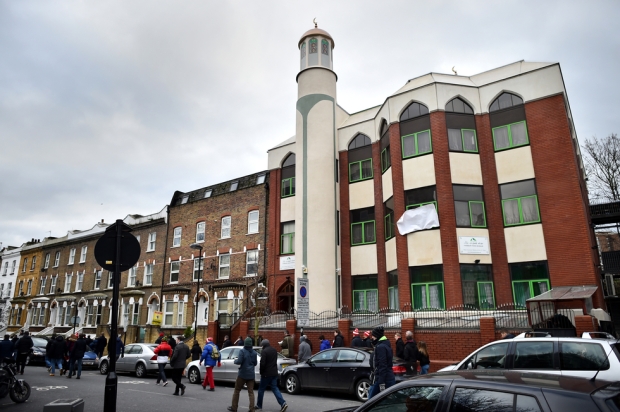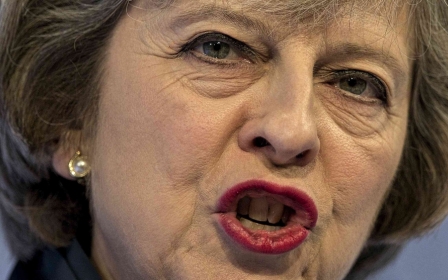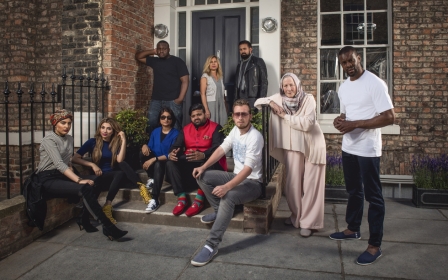Banks are unfairly targeting Muslims. Now ministers must end this injustice
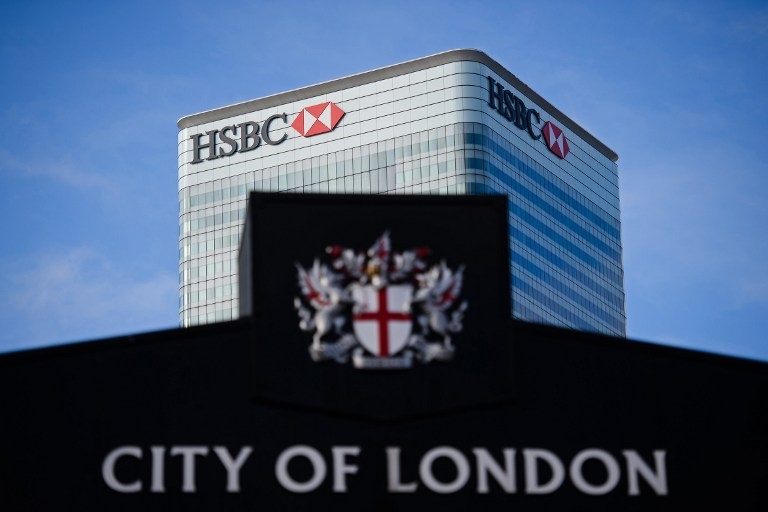
In June 2014, a number of Muslim charities, think tanks and activists received a letter from the HSBC bank, telling them their accounts were to be closed.
The letters provided no explanation nor right of appeal. There had been no warning. The recipients of this letter included a think tank, a charity - and the Finsbury Park Mosque in north London.
This was just the start. In due course, a deluge of organisations connected with Muslim causes were targeted.
READ: The truth behind the Muslim charities extremism scandal
One example was the Palestinian Solidarity Campaign, which has agitated in support of Palestinian rights for more than three decades. The PSC received a letter from its bankers, the Co-op, stating that its accounts were to be closed. Once again no explanation, no warning and no right of appeal.
Individuals were targeted as well. One was Anas Altikriti, chief executive of the Cordoba Foundation, a think tank. Altikriti’s family had banked with HSBC since 1985, when he opened an account with the Midland Bank (later taken over by HSBC) in Manchester.
World-Check is not a conventional credit rating agency. It provides banks with data about potential criminal or terrorist associations of their customers, as well as their political connections
HSBC also sent letters to his wife and his two sons, aged 16 and 12, cancelling their accounts.
They read: "For clarity, it is not our intention to offer banking facilities to you in the future. I would ask you to refrain from making any applications to open any accounts with us, or indeed any part of the HSBC group or MS Bank."
At the time Altikriti told me of his shock. "It was as though we had done something wrong,” he said, “as though there was some sort of criminality".
Flaws of World-Check
These bank closures were sinister. All those affected were public figures or politically connected. Some had links with the Muslim Brotherhood. Was there a connection with the review into the Brotherhood announced by prime minister David Cameron a few months earlier?
It looked like prominent Muslims were being targeted, but it was impossible to be sure.
Then, in the autumn of 2015, came a significant breakthrough. I persuaded the BBC to allow me to make a Radio 4 documentary about these account closures.
The programme's producer, Anna Meisel, discovered the existence of a secretive database called World-Check, run by the global information giant, Thomson Reuters, and used by 49 of the world's biggest 50 banks.
We input the Finsbury Park Mosque into the World Check website. The first word that came up on the screen, input in red, was 'terrorism'
World-Check is not a conventional credit rating agency. It provides banks with data about potential criminal or terrorist associations of their customers, as well as their political connections.
World-Check refuses access to journalists. However, one of its clients, who had reservations about its methods, allowed us access to its software.
Anna and I travelled to a secret location, where we input the Finsbury Park Mosque into the World-Check website. The first word that came up on the screen, input in red, was “terrorism”. We immediately came across data indicating links to the attempted London Tube bombings on 21 July 2005, the shoe bomber Richard Reid and so on.
Wrongly labelled 'terrorist'
It is true that at one point this mosque had infamous connections with terrorism, when it was run by the notorious al-Qaeda-sympathising cleric Abu Hamza al-Masri.
That was more than a decade ago. Since then, with the aid of the Metropolitan Police, the mosque has been put under new management and is run in a professional and law-abiding manner under a new imam.
READ: Google-hosted Muslim leaders summit linked to Home Office unit
To be fair, this information was available on the WorldCheck website - but you have to study the page quite carefully to establish that the mosque’s connection with terrorism was far in the past.
World-Check cited sources included Muslim Brotherhood Watch, Wikipedia and the by-no-means impartial UAE News Agency (WAM).
This was troubling as the UAE has been criticised for human rights abuses and money laundering itself, and has been known to brand its political critics as terrorists.
It was clear that organisations labelled as terrorist on World-Check could not know their names were being brought into disrepute in this way.
It would not surprise me if the World-Check settlement with the Finsbury Park Mosque will be just the first of a flood of such settlements.
Solicitor Farooq Bajwa, who advised the Finsbury Park Mosque, told me today that he has 23 further cases on his books.
Parliament must now act in order to protect Muslims – and others - who are falsely branded as terrorists without their knowledge
There are similarities with the phone hacking scandal which brought the newspaper group News International to its knees five years ago. World-Check is likely to face a barrage of very similar cases from clients, who feel they have been defamed on the World-Check website.
In some cases, the consequences have potentially been extremely severe. It has caused them to lose their bank accounts, been denied access to credit and even the ability to conduct ordinary lives because of a slur against them of which they had no knowledge and therefore no means of challenging.
Muslims targeted
The World-Check Thomson Reuters settlement with the Finsbury Park Mosque comes in a week when the world has been convulsed by US President Donald Trump's inept and bigoted attempt to ban many Muslims from entering the United States.
The case of the Finsbury Park Mosque shows that there are other ways in which Muslims are targeted. Recent pioneering work by Miqdaad Versi, the assistant general secretary of the Muslim Council of Britain, has shown that Muslims are unfairly and falsely portrayed in the British media.
We also learn today that Muslims can be unfairly deprived of basic amenities like bank accounts
We also learn today that they can be unfairly deprived of basic amenities like bank accounts.
I believe it is essential that parliament must now act in order to protect Muslims – and others - who are falsely branded as terrorists without their knowledge.
There is a precedent for this kind of legislation. Early last year, MPs passed the Bank of England and Financial Services Act, which protected British MPs and senior public figures targeted as "politically exposed persons" under money laundering legislation.
READ: MPs don't give a damn about scandal of closed Muslim bank accounts
You can read the parliament debate about this new law as long as you like – but you will find nothing at all about the much greater problem facing Muslims falsely accused of terrorist associations which do not exist on websites they know nothing about.
Of course, banks should take serious precautions to ensure that their customers are not involved in criminal or terrorist activity.
But parliament needs to ask itself whether it is right that law-abiding British citizens can be stripped of his or her banking facilities at a moment's notice with no explanation given.
I suspect that the case of the Finsbury Park Mosque is simply the tip of a very large iceberg. It is time that ministers stepped in to resolve this grave injustice.
- Peter Oborne was named freelancer of the year 2016 by the Online Media Awards for an article he wrote for Middle East Eye. He was British Press Awards Columnist of the Year 2013. He resigned as chief political columnist of the Daily Telegraph in 2015. His books include The Triumph of the Political Class, The Rise of Political Lying, and Why the West is Wrong about Nuclear Iran.
The views expressed in this article belong to the author and do not necessarily reflect the editorial policy of Middle East Eye.
Photo: The London offices of HSBC seen in the Canary Wharf district of London on 16 February 2016 (AFP)
Middle East Eye propose une couverture et une analyse indépendantes et incomparables du Moyen-Orient, de l’Afrique du Nord et d’autres régions du monde. Pour en savoir plus sur la reprise de ce contenu et les frais qui s’appliquent, veuillez remplir ce formulaire [en anglais]. Pour en savoir plus sur MEE, cliquez ici [en anglais].



